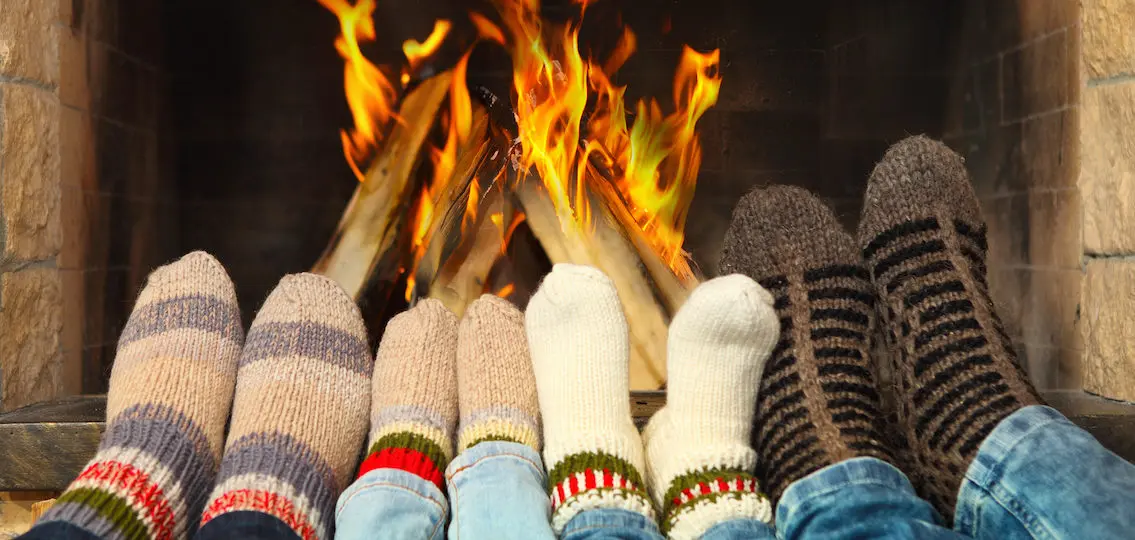Since COVID-19 upended everything from the economy to school to daily life, many families will not be gathering for the coming winter holidays. It’s another hardship for everyone, including adolescents. From distance learning to keeping their distance from friends, teens have experienced so many losses—and not just proms and graduation ceremonies, but sometimes even loved ones who have died from the virus.

Plus, let’s be honest about all this stay-at-home time: After being cooped up together for so long, many of us are getting on each other’s nerves, and the holidays just may be a tipping point for parents and teens alike.
Keeping things celebratory in the face of all this upheaval towards our “next normal” might be difficult. We asked experts to weigh in on how to talk to teens about celebrations in these tumultuous times and how we can forge new traditions to cherish.
How to Celebrate the Holidays This Year
1. Hear them out and give them some control
Not experiencing holiday traditions this year can seem like yet another loss, leading teens to turn inward. Encourage them to voice their frustration, advises Gayle Whitlock, a marriage and family therapist in Santa Rosa, California.“It’s important to validate what they’re feeling. ‘Yes, this sucks.’ Let them externalize their grief and acknowledge their angst,” she says. “Remind them that we’re all experiencing a sense of great loss. But we’re also finding ways to connect with each other and get through this.”
Dr. Marni Amsellem, a licensed clinical psychologist who practices in New York and Connecticut, suggests allowing your teen to plan whatever holiday activities they’d like to try—while continuing with social distancing, of course.
“Ask them: ‘What do you think we could do to make it feel special, different and something we’ll want to remember?’” Ansellem suggests.
Let your teen decide what’s most important to them right now, suggests George James, Psy.D., a licensed marriage and family therapist in Philadelphia, Pennsylvania.
“We all have to think about which traditions and rituals connected to our value system can still be maintained, and what we might be willing to part with this year,” explains James.
Parents still have the final say, especially when it comes to health concerns, “but your teen might surprise you with ideas you haven’t thought of or creative ways to do things, especially with technology,” says James. For example, if your teens associate the holidays with huge family gatherings, not having their grandparents with them for the first time could be difficult, notes James. Ask them to brainstorm alternatives.
“Maybe we can’t hold hands or hug and kiss the way we would. But we can catch up virtually, which might feel good,” he says. In addition to Zoom calls, teens could perform a virtual concert for grandparents if they play an instrument. Or they could create a video presentation. They may even agree to write them an old-school letter.
2. Focus on the silver linings
Consider this: This year, you’re not going to be dragging your family across town or cross-country in order to visit everybody on your checklist between Thanksgiving and year’s end. That means everyone may experience less stress this year, says Michelle Garrett, a mother of two in Columbus, Ohio.
“As a mom of a 13-year-old daughter and 18-year-old son who have been wanting to avoid big family gatherings for a couple of years now, we’ll most likely celebrate with just the four of us,” says Garrett, who usually hosts 15 people for a boisterous dinner each year.
“It will probably be a quieter, more restful time. That isn’t a bad thing, in our opinion—the holiday hustle and bustle can get to be too much.”
Eliminating the frantic hustling opens the door to spending more enjoyable family time together, adds Whitlock.
“Let’s sit down and get to know each other again by talking or playing cards, board games, and charades,” she suggests.
“There’s been a lot of turmoil this year. We’ve had a pandemic, fires, plus horrible social and racial unrest. Perhaps this is a time to reflect on what we have to be thankful for. We can truly celebrate what it means to be family.”
3. Embrace new rituals and traditions
Whitlock grew up celebrating Christmas and continued to do so with her own child, now grown. But this year, she felt drawn to Kwanzaa.
“Kwanzaa is a holiday that was created for Black Americans to reflect and to remember. Its seven principles are unity, self-determination, collective work and responsibility, cooperative economics, purpose, and faith,” she explains. “I just can’t think of a better focus, as this last quarter of the year winds down, to double down on these principles and to look at how I can create these into my daily life and connect to that faith.”
Why not encourage members of the family to learn about how other cultures around the world celebrate at this time of year? Then have them share their findings one afternoon. Your teen may want to cook a new dish or listen to different music. Real-life travels are limited, but cultural exploration can shake up humdrum pandemic days.
4. Put your holiday budget to good use
Traveling during the holidays depletes your sanity and your wallet, says Amsellem.
“There are benefits of not having to rush around and travel, so focus on the positives,” she says.
If your circumstances allow, think about how funds that may have been allocated to flights, hotels, and non-stop gift-shopping could be invested elsewhere—either in a big purchase the whole family can enjoy, or even better, towards a meaningful gesture, suggests Whitlock.
“Rather than spending time in overcrowded shopping malls, make it a new—and maybe ongoing—tradition to donate to a charitable organization that supports our collective community,” she says.
Discuss which causes your teens are interested in. Have them research local organizations that could benefit from your family’s generosity.
5. Spice things up
Just because you’re not sitting around a jam-packed dinner table, that doesn’t mean you can’t enjoy the delicious meals everyone associates with the holidays, says Amsellem.
“If there are family recipes that are a part of every holiday, make them at home together,” she suggests. “Or, if nobody really likes Grandma’s cornbread, what other recipe could you find? Ask your teen: ‘What could we do that really honors what we like in this house?’ This is an opportunity to create new meal traditions. And for large families in different states that can’t come together, have a pie-baking contest where everybody shows off their entry online.”
Sometimes, holiday rituals can keep families from creating new traditions together, says James.
“Maybe there’s something your kids want to try, like skiing. Maybe they’ve actually been miserable and hated going to gatherings and would love a more intimate time. Now, there could be an opportunity for more conversation and creativity within the family.”
Quoting the lyrics to the classic holiday song, “Have Yourself a Merry Little Christmas,” Whitlock notes that “through the years, we will all be together— if the fates allow.”

“We’ll get through this together if we continue to wear our masks, wash our hands, practice social distancing, and remember that this, too, shall pass,” she says.




